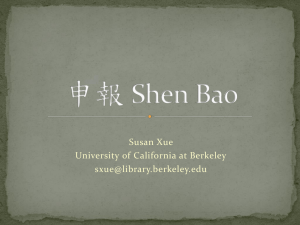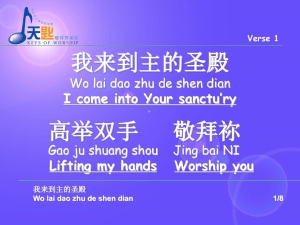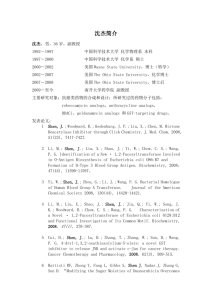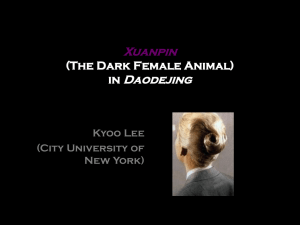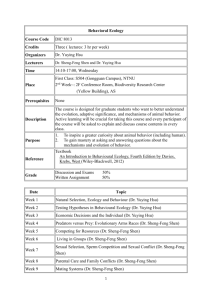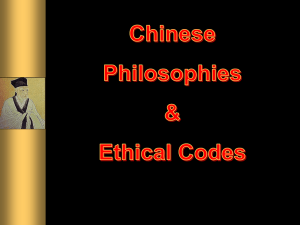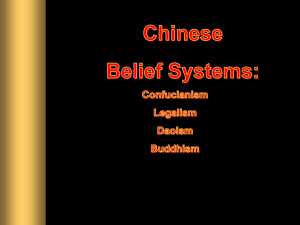Shen Dao`s Political Thought
advertisement
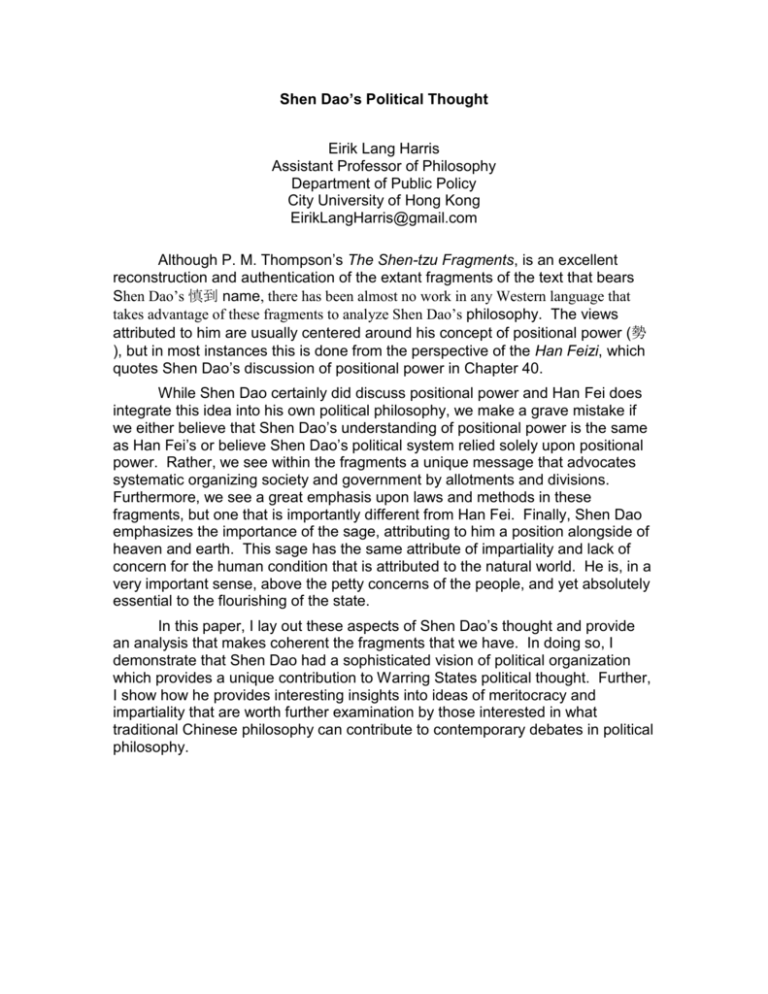
Shen Dao’s Political Thought Eirik Lang Harris Assistant Professor of Philosophy Department of Public Policy City University of Hong Kong EirikLangHarris@gmail.com Although P. M. Thompson’s The Shen-tzu Fragments, is an excellent reconstruction and authentication of the extant fragments of the text that bears Shen Dao’s 慎到 name, there has been almost no work in any Western language that takes advantage of these fragments to analyze Shen Dao’s philosophy. The views attributed to him are usually centered around his concept of positional power (勢 ), but in most instances this is done from the perspective of the Han Feizi, which quotes Shen Dao’s discussion of positional power in Chapter 40. While Shen Dao certainly did discuss positional power and Han Fei does integrate this idea into his own political philosophy, we make a grave mistake if we either believe that Shen Dao’s understanding of positional power is the same as Han Fei’s or believe Shen Dao’s political system relied solely upon positional power. Rather, we see within the fragments a unique message that advocates systematic organizing society and government by allotments and divisions. Furthermore, we see a great emphasis upon laws and methods in these fragments, but one that is importantly different from Han Fei. Finally, Shen Dao emphasizes the importance of the sage, attributing to him a position alongside of heaven and earth. This sage has the same attribute of impartiality and lack of concern for the human condition that is attributed to the natural world. He is, in a very important sense, above the petty concerns of the people, and yet absolutely essential to the flourishing of the state. In this paper, I lay out these aspects of Shen Dao’s thought and provide an analysis that makes coherent the fragments that we have. In doing so, I demonstrate that Shen Dao had a sophisticated vision of political organization which provides a unique contribution to Warring States political thought. Further, I show how he provides interesting insights into ideas of meritocracy and impartiality that are worth further examination by those interested in what traditional Chinese philosophy can contribute to contemporary debates in political philosophy.

